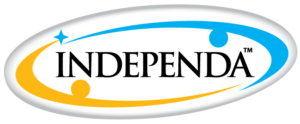Just as the individual needs of elderly Americans vary substantially, so too do the services rendered by assisted living and home care communities. But, as the Baby Boomer generation passes retirement age, eldercare professionals from each area of this field will have to adapt to meet the growing demand.
The Assisted Living Federation of America (ALFA) has divided this profession into the following subsections:
Assisted living – “Assisted living is designed for individuals who require assistance with everyday activities such as meals, medication management […],bathing, dressing and transportation,” ALFA states. Typically, new residents are assessed to determine the amount of aid they’ll require, but such requirements may change over time, so care managers must be vigilant in monitoring the day-to-day changes in their residents’ conditions.
Assisted living with dementia care – The latest statistics from the Alzheimer’s Association state that one in six elderly Americans suffers from this form of dementia. Professionals who work in such communities generally must provide a greater degree of monitoring to ensure that residents don’t become disoriented or forget to take essential medications.
Continuing care – These facilities combine the services of independent living and assisted living communities with the medical focus of nursing homes. As such, the individual needs of residents vary widely, and these individuals can transition from one degree of care to another. Determining when recipients require more assistance, and adapting to meet the shifting demand, poses unique implications for care managers in these facilities.
Home-based care – At-home eldercare is a growing field that is now the most popular option for older Americans. This method of eldercare provides a challenge for professionals who must keep track of various recipients in different locations and ensure that a caregiver can be on hand for each when necessary.
Independent living – These communities, ALFA states, are comprised of residential units intended for elderly individuals who require relatively little aid with day-to-day tasks, but could benefit from the inclusiveness of the community and general maintenance. For care managers charged with overseeing such communities, it can be difficult to instill a sense of social engagement among residents, and to ensure the safety and general well-being of recipients without becoming intrusive.
Within each subsection, care managers are looking for ways to improve the quality of life of their residents while attracting new clientele and effectively utilizing their resources. Independa’s technology-enabled eldercare solutions have been expressly designed to empower care managers – whether they provide in-home eldercare or oversee a large community of residents. With our Caregiver Web App, these professionals can utilize remote monitoring to assess the needs of their recipients and schedule medical reminders and other notifications as necessary.
Contact us through our online form to learn how Independa’s cutting-edge technology can complement your assisted living community.




